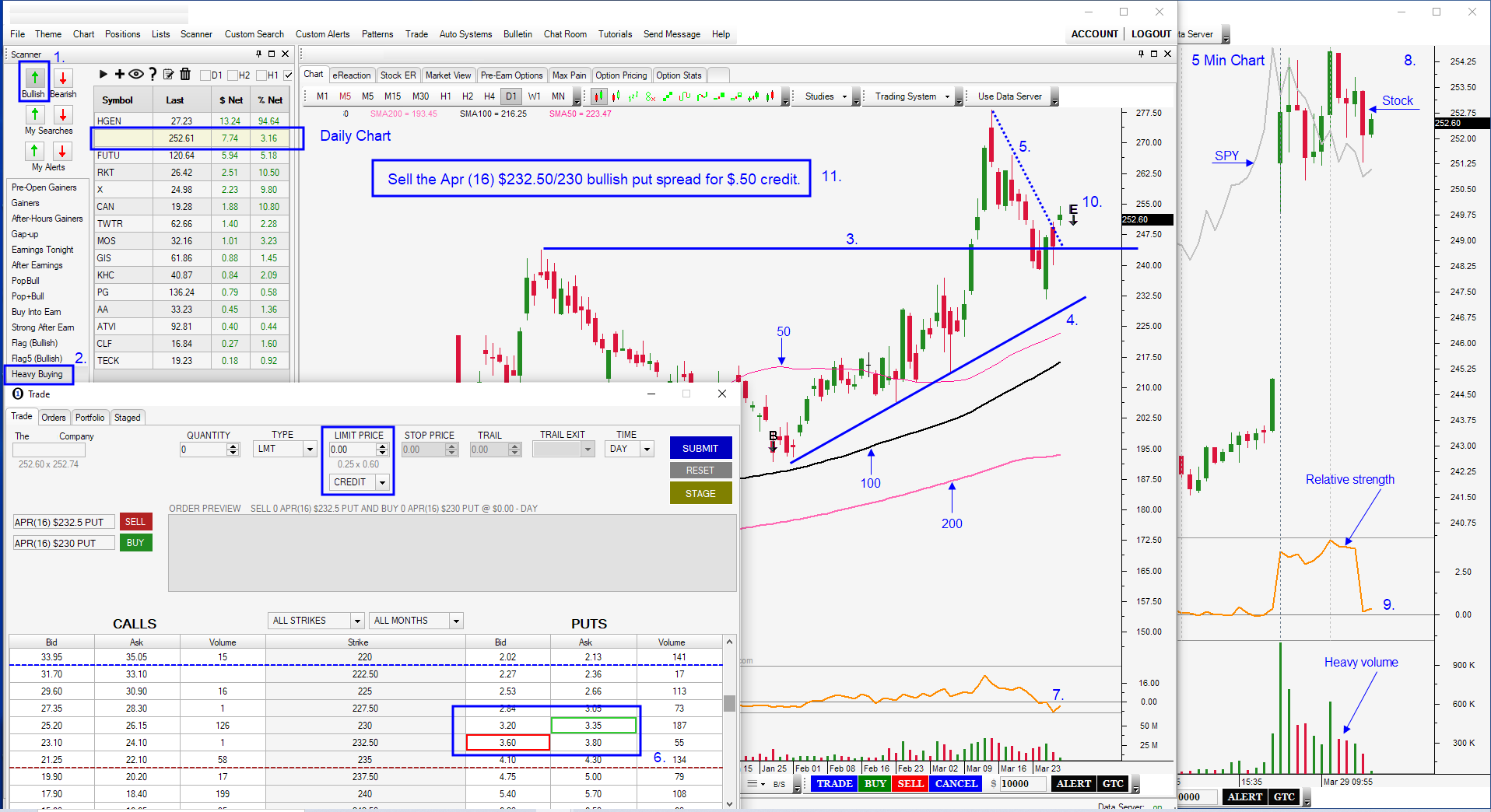Question
Today Rick S. asks, “Why are some option bid/ask spreads a nickel wide and others are fifty cents wide?”
Answer
Don’t get me started! For the most part the Specialists, Market Makers and Designated Primary Market Makers determine the spread. I will generically refer to them as DPMs. The title varies from exchange to exchange but the function is the same. They pay membership fees to be able to post option bids and offers. If the option trades actively and the stock is a big cap (GE, MSFT, CSCO) you have a good chance of trading against another trader and the markets are much tighter. As soon as you get off the beaten path just a little, that shifts dramatically.
That’s when the DPM’s are there to “help”. This use to be a manual process and it was handled by a person on the floor. Now everything is electronically quoted, executed and cleared on less liquid issues. The large trading firms (Susquehanna, Timber Hill) have auto-quote systems that determine the bid and ask based on the price of the stock and general option pricing algorithms (Black-Scholes).
I will say that the role of DPM is falling into more and more concentrated hands and that is not healthy. I will also say that I suspect the auto-quotes are less tied to the pricing models than they are to where the other DPM’s have their markets posted. Ever wonder why every exchange ALWAYS has the same bid and ask? Hundreds of millions of dollars spent on programming and their models are identical. Personally, I think it is electronic collusion. To make matters worse, the exchanges have lifted pricing parameters that limited how wide the DPM’s can make their market. The exchanges use to feel that having pricing rules would tighten their markets and attract order flow. Apparently protecting their deep pocket members (DPMs) is much more important. The same DPM often makes markets on same option across different exchanges.
There is also one more thing that auto-quotes base their pricing on – public orders. Yes, they can tell. Every order is designated as retail or firm (institutional).
When the exchanges imposed spread parameters, the price of the option ($1, $3, $5, $8) the bid/ask spread of the underlying and the volume of the underlying were considered. That seemed fair. Now, I’ve seen such wide markets that I’m certain they can do what ever they want. Last month I tried to get out of a call that was ITM a couple of days before expiration and the market was ridiculous. The call was $.80 in the money and the market was $1.20 bid offered at $1.50. The stock had trade 1.2 million shares with an hour left of trading (liquid stock) and that was the best they could do. That is a 25% bid/ask spread and it was shameful. I tried working the order across all exchanges and not one DPM would take me out when I was trying to sell them a nickel higher than the bid. That’s when I called the Options Industry Council (OIC) to voice a complaint and they notified me that – there are no longer spread quoting rules and, “It is what it is.”
To make matters worse, let’s say that I want to make markets and I want to improve the bid/asks as a retail customer. Every time I cancel an order, the exchange charges the brokerage firm $1 if their cancel quota has been exceeded. The brokerage firm then charges me, the trader. A handful of traders like this would put a medium size brokerage firm on the cusp of the exchange cancel quota in a hurry. How can I make a market if I can’t adjust my bid/asks without getting charged? Again, the exchanges are protecting their members.
This is a very frustrating obstacle to trading options and I will try to give you a few pointers on how to “work an order” in my next posting.
For now, if the spread is too wide, forget the options and trade the stock. Do not leave a live order between the bid/ask in a wide market. If you do, be prepared for the worst fill ever. You can’t afford to give away that much edge.
I told you not to get me started!









